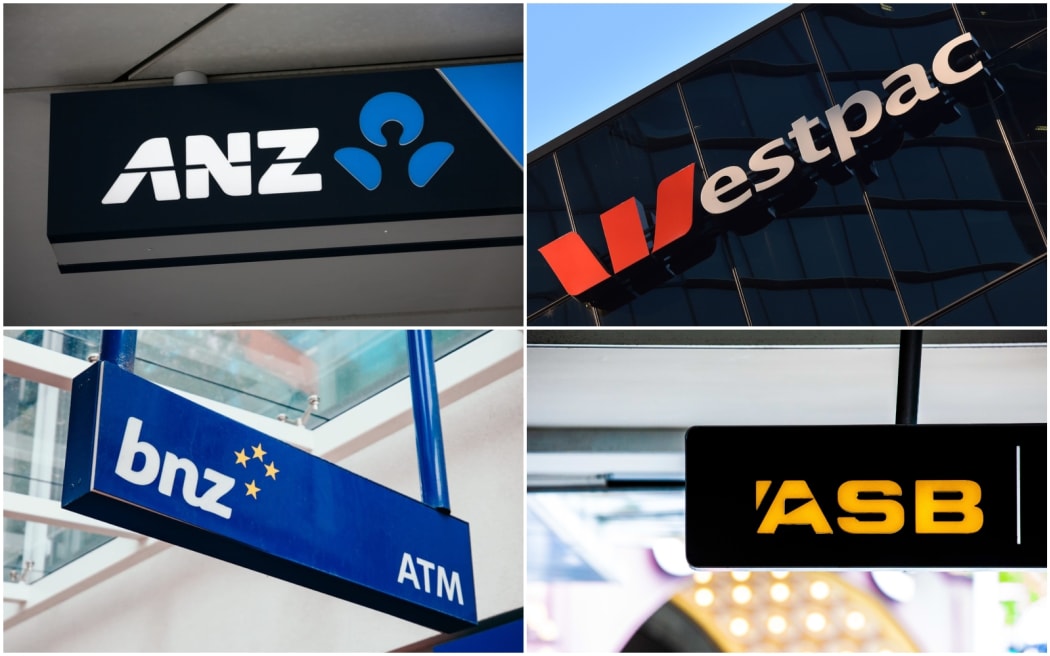Navigation for News Categories
ANZ remains New Zealand’s biggest bank with more than $189 billion in assets, with Westpac second, followed by ASB and the BNZ. Photo: RNZ
Bank profits have fallen to their lowest level in 18 months as they put more aside for possible bad debts and lending growth stalled, denting margins.
KPMG’s quarterly banking survey shows sector profits for the three months ended March were $1.54 billion or 13 percent down on the December quarter’s $1.77b, 11.6 percent lower than the same quarter a year ago, and the lowest since the September quarter 2021.
The key driver of the profit fall was an increase in the money set aside for bad and doubtful debts, which surged 10 percent to $2.96b in the previous quarter, with mortgage lending falling 28 percent, while the levelling out of interest rate rises saw margins fall.
KPMG head of banking John Kensington said the increase in provisioning was a sign of the economic times.
“It’s likely that this action is one step the banks are taking to prepare for expected future credit losses that will likely arise from the forecasted economic downturn.”
All nine of the retail banks in the report had a drop in quarterly profits, with the Co-operative Bank posting a small loss.
Kensington said more customers were falling behind in their payments as they struggled to meet loan repayments.
“It’s clear that banks are acknowledging that their provisioning figures are likely to remain high as households continue to struggle with rising inflation and rising interest rates.”
The growth in banks’ net interest income – the difference between borrowing and lending costs – decreased 2.8 percent, as bank interest rate margins fell as much as 20 basis points for some leading banks. Operating expenses were marginally lower than the previous quarter.
Kensington said he expected the next three months would be the crunch time for bank profits.
“This largely depends on whether or not we’ve come to the end of the interest rate rising cycle, how deep of a recession we slip into, and how this affects the sector’s provisioning.”
ANZ remained the biggest bank with more than $189b in assets, with Westpac second, followed by ASB and the BNZ. The biggest locally owned bank was Kiwibank and it remained a distant fifth.
The head of the Banking Association, Roger Beaumont, said many households had cushioned themselves from the impact of rising rates and a slowing economy by getting ahead in mortgage repayments.
In an article for the KPMG report he said banks were financially strong and could be expected to help consumers in difficulties through mortgage restructuring to reduce payments, and interest only payments.
The Commerce Commission is due to start a market study into banking servicesaimed mostly at competition in providing personal banking services, with a preliminary issues paper expected in August.
“I hope both this and the following review will be balanced, wide-ranging and well-conducted,” Kensington said.
Note: This article have been indexed to our site. We do not claim legitimacy, ownership or copyright of any of the content above. To see the article at original source Click Here
















